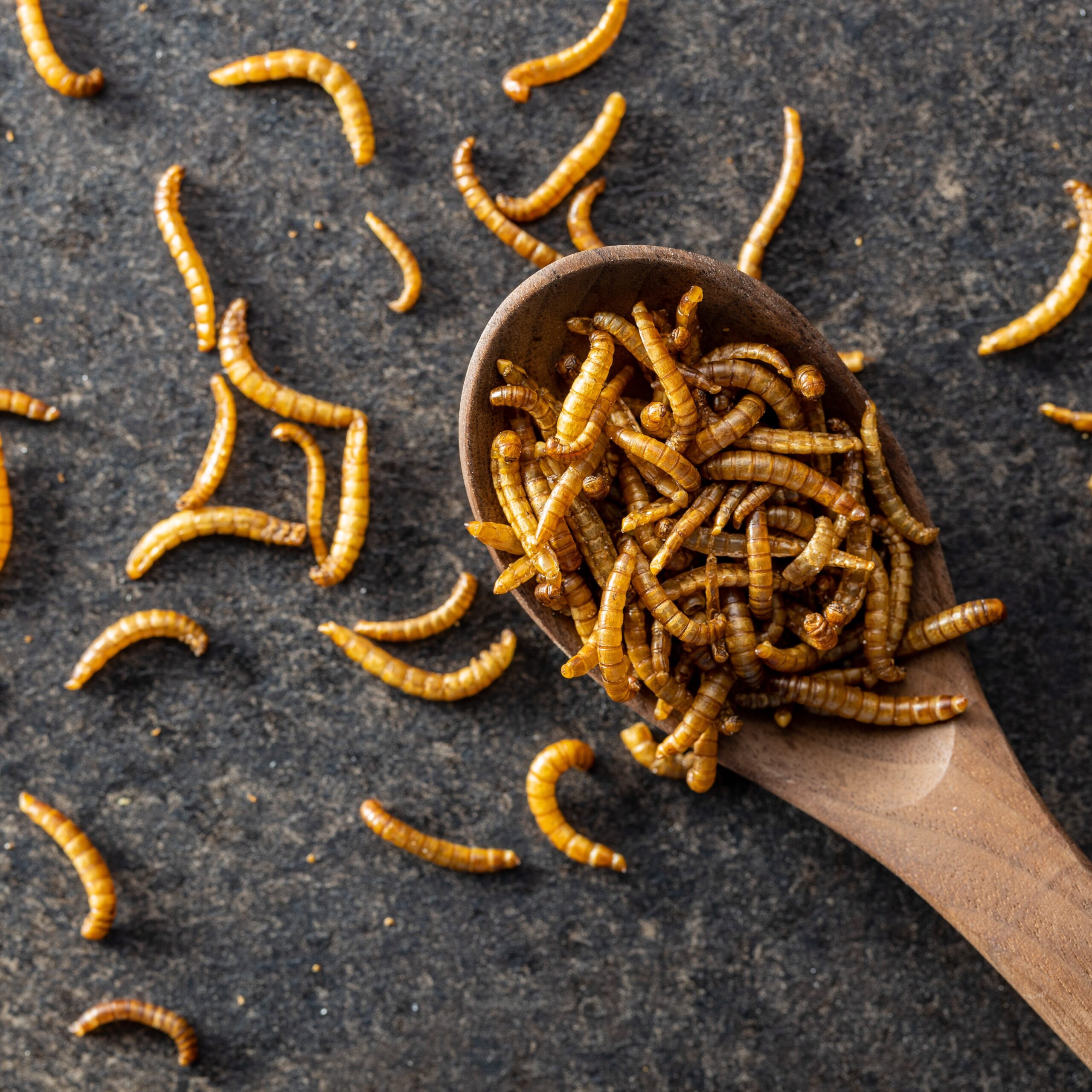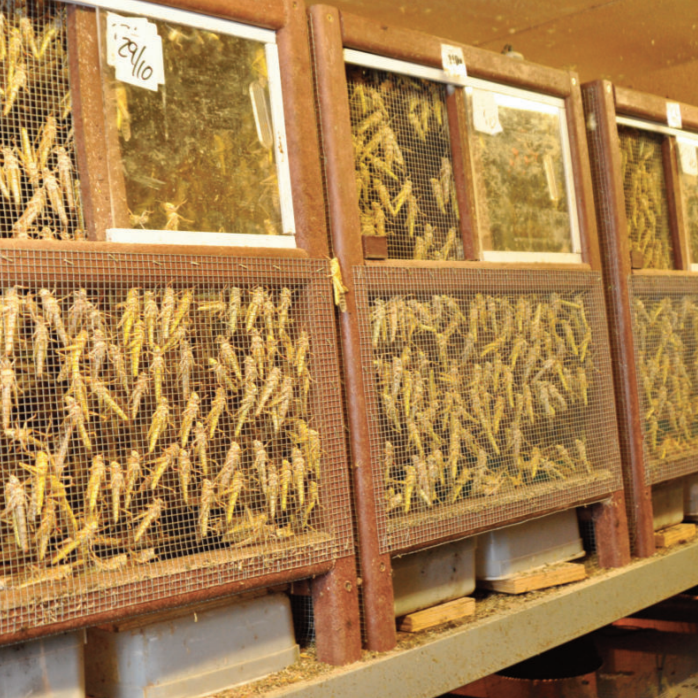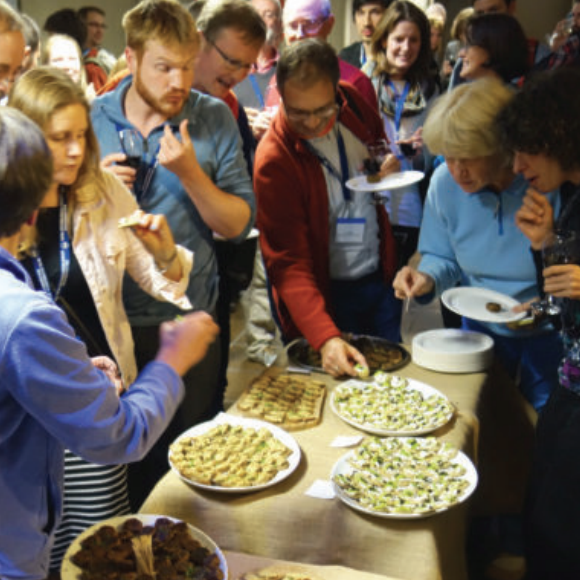

Feeding the Future: Using Insects as Food and Feed
30 October @ 18:30 – 20:30
Wednesday 30 October, 18:30 – 20:30 (exact timing tbc)
Thinktank Museum, Birmingham
Across the world, insects are being reared as a source of food for humans and as animal feed.
Although using insects as food and feed is not as common in Europe as places like Africa, Asia and South America, this is a fast-growing industry. Investment in this sector has seen a considerable increase in recent years with a many organisations exploring how insects can tackle some of the most pressing concerns facing our food and feed industries. For example, you may have seen energy bars that contain insect flour hitting the shelves recently, or insect-based pet food, but why?
One of the arguments for using insects as food is that they have a good nutritional value, and are high in protein, calcium, and other essential vitamins and minerals that are harder to obtain from a plant-based diet, like iron and B12.
There are clear indications that insect farming can contribute to improving the resilience and sustainability of food production, requiring comparatively little input in terms of feed, water or space. Insect farms can fit into existing supply chains, from producing additional feed on farms, or utilising surplus products to create value. As we look to address the challenges of feeding a growing human population, while reducing the impact of agricultural production on our natural and management environments, it is important to both improve existing production and consider more novel approaches – such as insects as food and feed.
- What are the current issues facing our feed and food sectors? And why are insects a possible solution?
- Should we be using insect protein in our day-to-day diet? Why not focus on improving plant-based protein options?
- What are the regulations around farming insects and is it ethical?
- Is it sustainable to farm insects for food and feed, will farming insects at scale to make a difference?
- How can we make farming insects a commercial success?
- Why are so many people excited about insect farming in the UK?
Join us at this exciting and topical panel debate where we will introduce using insects as food and feed and look at the challenges and opportunities faced as this becomes more widely considered.
We are delighted to announce that the discussion will be chaired by BBC journalist, Melanie Abbott. Melanie is a BBC Radio 4 journalist with You and Yours, Woman’s Hour and Farming Weekly. Melanie will be joined by a range of panellists sharing their views and experience and taking questions and comments from the audience.
The debate will take place alongside our annual Insects as Food and Feed (IAFF) conference taking place the following day in the same location. The conference brings together a diverse range of people from across the industry including scientists, farmers, food technologists, lawyers and chefs, to hear the latest information, research, and new developments and challenges that face the IAFF sector. You can find out more about the conference and register here.




The panel
We are delighted to welcome the following panel to discuss this exciting topic. One further panelist will be announced soon.
Sarah Beynon
The Bug Farm

Sarah Beynon is the founding director of Dr Beynon’s Bug Farm (The Bug Farm) – a research and education centre, visitor attraction, farm and wildlife reserve focussed on the sustainable future of food, farming and nature recovery. Sarah’s own research focus is on beneficial invertebrates in farmland and her work has been used to inform the protection of invertebrates in UK agri-environment schemes. Her interest in farming insects for food led her and her chef husband Andy to launch Bug Farm Foods in 2017, where they produce a range of food made from farmed insects, including their famous Cricket Cookies and VEXo – an insect and plant protein mince that they developed with Welsh Government and Innovate UK, with the aim of getting it onto school menus to help reduce childhood obesity and highlight sustainable food choices.
Nick Jonsson BVSc PhD MRCVS
Professor of Animal Health and Production, University of Glasgow

Nick Jonsson graduated as a vet from the University of Sydney in 1987 and spent 7 years working in mixed practice in rural Australia, with a caseload of small animals, cattle, horses, deer, sheep, ostriches and native wildlife. After this, in 1998 Nick completed a PhD at the University of Queensland and has worked as an academic since then. The main strands of Nick’s research include bovine gastrointestinal function and pathology, feed additives for livestock, the use of sensor technologies to optimise ruminant health and production, the genetics of adaptation in cattle, and strategies for parasite management. Nick is the Chair of the Advisory Committee on Animal Feeding stuffs for the Food Standards Agency of the UK, a Vice President of the British Society of Animal Science (BSAS), and the leader of the online Animal Nutrition MSc programme at Glasgow.
Ralph Bishop
Poultry Nutrition and Innovation Manager, Premier Nutrition

Ralph and the Premier Nutrition poultry team are responsible for offering technical support to the poultry industry focused on nutrition, formulation, milling and overall poultry performance both within the UK and abroad.
Previous to ten years in commercial poultry nutrition, Ralph studied ecology, biology and aquaculture at the University of Plymouth, graduating with an MSc in 2014. Entomology was part of his undergraduate programme, and his dissertation was on the dispersal behaviour of backswimmers.
Ralph is particularly passionate about optimising all aspects of poultry performance and precision nutrition in a sustainable way to unlock the potential of modern genetics and offer the consumer safe, nutritious, and sustainable food.

Tickets
Tickets are available at the bottom of the page and include a drinks token for a short networking opportunity after the debate.
If you are a member of the RES or registered to attend the IAFF24 conference you can access reduced rate tickets. To access discounted member rates, you must be logged into your account before registering.
You can buy tickets until: Friday 25 October

Location
Thinktank Museum, Event Suite
Millennium Point
Curzon Street
Birmingham
B4 7XG
